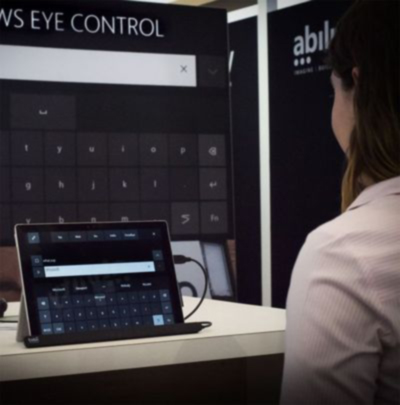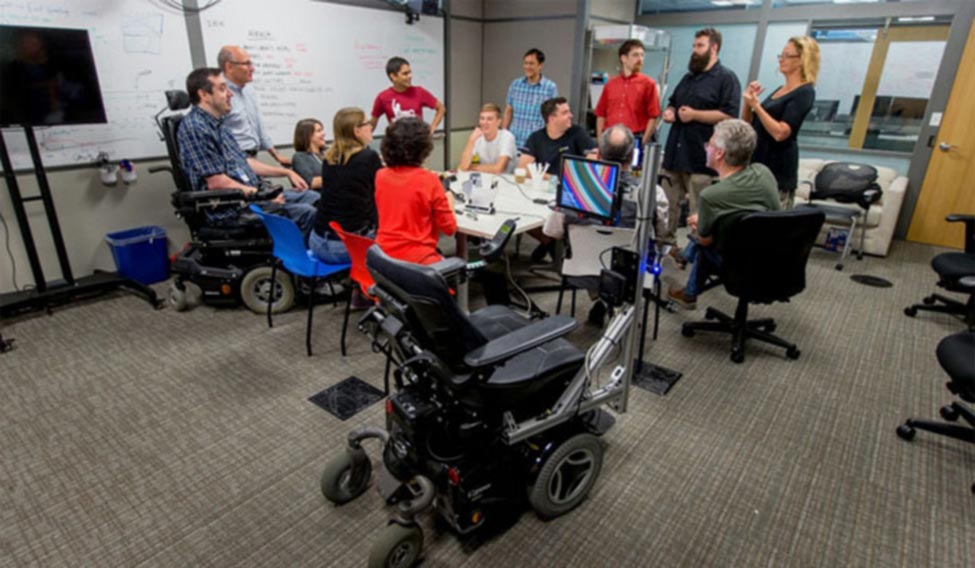Upcoming iterations of Microsoft's Windows 10 desktop operating software will include a new tool that is expected to be widely welcomed by those with severe physical challenges.
The tool called Eye Control, allows a user to control a PC screen and issue various commands that normally require a keyboard and mouse interface—by a movement of the eyes.
Many patients restricted to a wheel chair who have suffered a loss of sensation in their limbs, can look at the screen—and a special eye tracker will interpret their wishes. The software developed by Microsoft engineers needs an additional physical tool an eye tracker similar to the Tobii 4C that is used by gamers to supplement a joystick.
How Microsoft came to develop this tool is an interesting story that the company recounted in a recent blog.
 A demo of Eye Control app at a recent Microsoft hackathon
A demo of Eye Control app at a recent Microsoft hackathon
Three years ago, Steve Gleason a player in the US NFL football league was struck by a severe disability—Amyotrophic Lateral Sclerosis (ALS)—that restricted him to a wheelchair. He was deprived of almost all movement-- except his eyes. He turned to Microsoft to see if technology could help him overcome his disability.
A team led jointly by Eric Badger, Principle Software Engineer Lead on Windows, and Harish Kulkarni, Principal Software Development Engineer in Microsoft Research, made the footballer's need, a challenge at an internal hackathon. The hackers came up with a specially instrumented wheelchair , "EyeGaze", that was modified so that Steve could issue commands to a PC by looking at it and moving his eyes over special menus. His gaze was caught as it pointed at letters of the alphabet—which allowed him to type a document.
When Microsoft CEO, Satya Nadella, was alerted to the project at a routine review, he saw its potential for a wider world of physically challenged people and directed that the tool be refined and in cluded when Windows 10 was updated. The result is "Eye Control"
The tool is still in beta development stage but any one wanting an early try out can register at Windows Insider.




